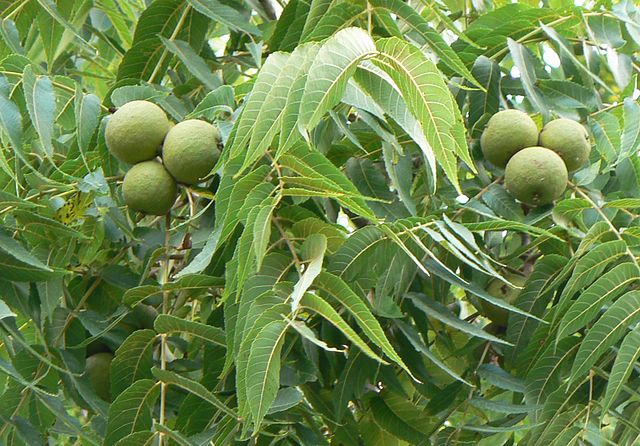- Home
- >
- Broadleaved Tree Seeds J-Z by Latin Name
- >
- Black Walnut (juglans nigra)
Black Walnut (juglans nigra)
SKU:
£1.85
1.85
8
£1.85 - £8.00
Unavailable
per item
Seed Prices.
50 grams (approx 2 or 3 seeds) £1.85
100 grams (approx 5 or 6 seeds) £3.50
250 grams (approx 14 seeds) £8.00
Due to the size of these seeds they have to be shipped at the small parcel rate
Use the drop down button to select the seed quantity
Germination, Sowing and After Care Information
for Black Walnut (juglans nigra)
Walnuts are dormant and need to undergo a period of pre-treatment known as stratification to enable them to germinate. The nuts should be mixed with a 50/50 blend of moist peat/compost and sharp sand -just enough to separate the seeds from each other. Put them in a plastic bag (freezer bags are ideal) and place the loosely tied bag in a fridge for at least 6 weeks. Keep checking them every week and if they show signs of germination plant them as soon as possible.
After this period of pre-treatment they can be sown in good quality potting compost in deep containers (at least 20cm deep), covering each nut with a couple of centimeters of soil As soon as these trees germinate they produce a very strong taproot, planting in shallow containers will cause severe root deformation. They can be started off under protection or indoors but should really be placed outside from the early summer.
They can be also be sown outside in the garden usually during April in soil that has been well cultivated and is free from perennial weeds. Walnuts are best broadcast over the soil, pushed into the soft soil by hand or using a roller and then covered with a couple of centimeters of soil. They will need protecting from mice, squirrels and pigeons etc.
The newly emerged seedlings are very vulnerable to late spring frosts and must be protected using fleece, straw etc. Sowing should not be done too early in the spring so that the seedlings emerge after date of the last Spring frosts- usually during May and early June depending on your locality. Initial growth is rapid and within a few weeks from germination the seedlings will be between 10 and 20cm high. To encourage maximum growth ensure that the trees are never stressed because of a lack of water and that they are well nourished and grown in a warm, sunny position.
Trees should be planted in their permanent position as soon as is practical. If they are large enough, at the end of their first growing season and certainly at the end of the second. Walnuts produce an impressively stout taproot that is quite soft and fleshy and is easily damaged when transplanting. After 3 or 4 years the size of this taproot makes transplanting quite a challenge!
Newly planted trees must be kept free from all weed and grass competition, these conditions will allow the greatest transplanting success and vigorous post planting growth. A young tree that has a 1 meter diameter weed free area around it will grow at least 3 times faster than one that has serious grass and weed competition.
After this period of pre-treatment they can be sown in good quality potting compost in deep containers (at least 20cm deep), covering each nut with a couple of centimeters of soil As soon as these trees germinate they produce a very strong taproot, planting in shallow containers will cause severe root deformation. They can be started off under protection or indoors but should really be placed outside from the early summer.
They can be also be sown outside in the garden usually during April in soil that has been well cultivated and is free from perennial weeds. Walnuts are best broadcast over the soil, pushed into the soft soil by hand or using a roller and then covered with a couple of centimeters of soil. They will need protecting from mice, squirrels and pigeons etc.
The newly emerged seedlings are very vulnerable to late spring frosts and must be protected using fleece, straw etc. Sowing should not be done too early in the spring so that the seedlings emerge after date of the last Spring frosts- usually during May and early June depending on your locality. Initial growth is rapid and within a few weeks from germination the seedlings will be between 10 and 20cm high. To encourage maximum growth ensure that the trees are never stressed because of a lack of water and that they are well nourished and grown in a warm, sunny position.
Trees should be planted in their permanent position as soon as is practical. If they are large enough, at the end of their first growing season and certainly at the end of the second. Walnuts produce an impressively stout taproot that is quite soft and fleshy and is easily damaged when transplanting. After 3 or 4 years the size of this taproot makes transplanting quite a challenge!
Newly planted trees must be kept free from all weed and grass competition, these conditions will allow the greatest transplanting success and vigorous post planting growth. A young tree that has a 1 meter diameter weed free area around it will grow at least 3 times faster than one that has serious grass and weed competition.



